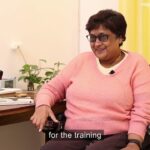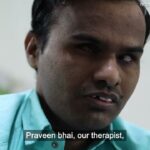Vani Vishwanathan on Disability, Sexuality & Rights – TARSHI
Vani Vishwanathan, Co-Lead at TARSHI (Talking About Reproductive and Sexual Health Issues), speaks candidly about sexuality and reproductive rights of persons with disabilities – an area that is often overlooked. From privacy and consent to dating, relationships, and breaking myths, this film explores the real challenges and barriers faced by people with disabilities. More than just informative, it offers a refreshing, thought-provoking perspective on why sexuality is a fundamental human right for all. Watch and challenge your assumptions while embracing a lens of empathy and inclusion.
You can navigate to the specific topics using the following chapters:
00:00 – Ritika Sahni’s introduction to the film
00:28 – Vani Vishwanathan on TARSHI
4:13 – How can parents and society better understand and support the sexual rights of young people with disabilities?
5:16 – Tools for Exploration of Sexuality
6:10 – The Intersection of Disability and Sexuality
07:02 – How do social norms around marriage and dating affect people with disabilities?
09:48 – What barriers do individuals with intersecting identities face in navigating their sexuality?
consent, Dating & Disability, human rights, privacy, Reproductive Health., sexuality, SRHR, TARSHI


















